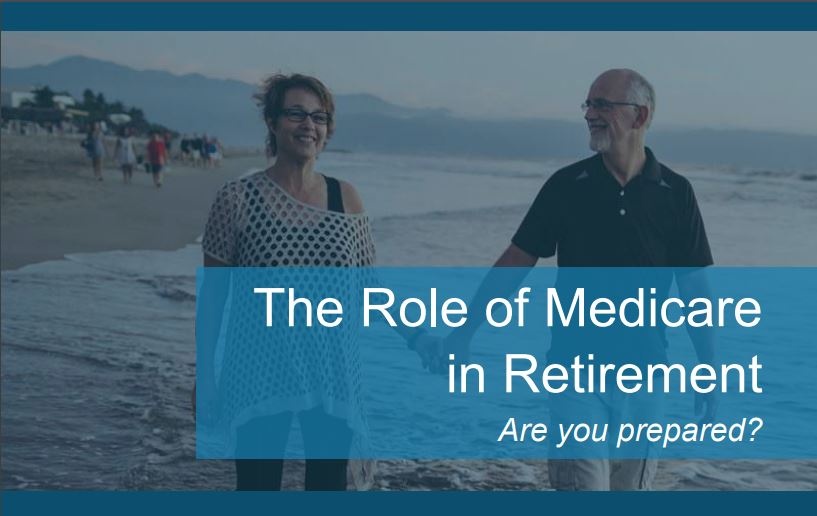

by David Sizemore
Categories:
Not Your (Grand)Parents’ Retirement: How Retirement Planning Has Changed
Retirement planning has changed tremendously in the past several decades.
In your parents’ or grandparents’ day, your average professional relied on a pension that was set up by their employer as well as Social Security benefits for their retirement. Investing was a conversation left to the extremely wealthy. And financial planning was a far-off concept.
That is no longer the case today.
At Scarborough Capital Management, we’ve seen some of these changes take place firsthand. Let’s take a look at some of the primary differences that have occurred.
401(k)s Have Largely Replaced Pensions
Up until the 1980s, many large companies offered pensions to their employees. Pensions are defined benefit plans, which pay out a certain defined sum for life upon retirement.
But over time many pension plans were replaced by defined
Employees with 401(k)s and similar plans need to make sure they save enough for retirement. With a pension, the company took care of retirement savings for you.
But ensuring that you save enough in your retirement nest egg is not the only change from your grandparents’ pension. With a pension, a company determines what the funds are invested in. With a 401(k) and other defined contribution plans, the investing decisions are in the individual’s hands.
While most companies offering 401(k) plans provide some guidance on the funds available to invest in, the decisions can be complicated. Employees either need to be comfortable making investment decisions or work with financial advisors for guidance.
At Scarborough Capital Management, 401(k) plan management is one of our specialties. Check out our step-by-guide here.
More Information is Available, Which Can Create Stress and Emotional Investing
One of the chief differences between today and 25 years ago is that more information
While more information can be good, it can also be overwhelming. It may be difficult to feel that you know where to look for the best information or to analyze the information you have. A lot of what you find online will be rules of thumb based on your average situation. Is your situation average?
Not only that, but information can lead to emotional investing. Emotional investing is any move based primarily on one’s emotions rather than rational considerations.
Emotional investing can pose risks. Sometimes, for example, investments drop severely in price. Folks swayed by their emotions may decide to sell these positions when they are low, to stop the losses. But that effectively locks in the loss rather than positioning them for future gains if the price rebounds.
Retirement Looks Different
How retirees are spending their Golden Years has also changed.
Back in the day, retirements were primarily sedentary. People stayed at home once retired.
Today, people tend to do more during retirement. You may travel more extensively, for instance. Or you may start a new business or realize a dream you didn’t have time to do when you were working. It’s common now for retirees to relocate, volunteer and even go back to school.
No matter what your retirement goals are, it’s important to make sure you have enough money saved to meet those goals.
Retirement Occurs at Flexible Ages
When your grandparents retired, it was likely at age 65 or close to it. Today, the “magic age” has become a personal decision.
Some people retire younger. Others choose
Read our recent blog post: 9 Ways Retirees Can Earn Extra Income.
People Are Living Longer
Perhaps one of the biggest changes in retirement is the length of retirement, based on an increasing average lifespan. When Social Security was first devised in the 1930s, the average lifespan for workers was only a few years after the then-standard retirement age of 65.
But the average life expectancy now is more than 78 years – and many people live longer than that. Advances in healthcare and treatment for many diseases has made retirement potentially an entire period of one’s life, rather than a brief span.
Because of this, many people fear running out of money late in life, especially now that pensions are rare.
But changes in longevity also necessitate other changes. For example, do you have a firm plan for healthcare and support you may need later in life, when both frailty and illness can be more severe? Discuss your long-term care needs and insurance options with your financial advisor.
How Scarborough Capital Management Can Help
A financial advisor can be a great asset when planning for retirement. One of the more daunting tasks to retirement planning is simply getting started. At Scarborough Capital Management, we work with investors at all phases of their financial lives.
Establishing a long-term relationship with your financial advisor can also be a huge benefit
A long-term relationship can also help you weather emotional times like we experienced in 2020. A financial advisor who understands your long-term goals can help you focus on the big picture when the here and now feel so uncontrollable.
If you’re looking for a financial advisor to work with, we’d love to chat. Schedule a no-obligation conversation and take the first step to secure your future.
The information provided here is general in nature and should not be considered investment, tax, or financial advice. Investing in securities involves certain risks which can include the loss of principal invested. Investors should carefully consider all risks involved before investing. You should consult with a licensed professional for advice concerning your specific situation.







